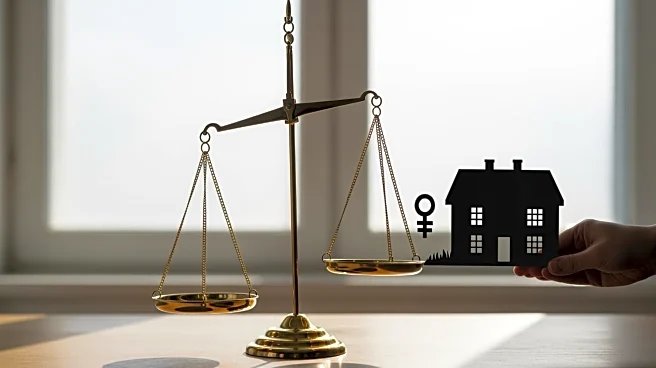What's Happening?
Norwegian local elections have historically seen campaigns aimed at increasing female representation, a tradition dating back to the introduction of general suffrage in 1913. Despite efforts, gender balance in local councils remains uneven across communities.
Political parties and voters have strategically applied election regulations to promote or restrain the election of female candidates. The campaigns illustrate the role of women's movements and collective mobilization in local elections, offering insights into the gender-political strategies of parties and voters.
Why It's Important?
The focus on gender equality in local elections underscores the ongoing challenges in achieving gender balance in political representation. These campaigns highlight the importance of women's movements in shaping political discourse and influencing election outcomes. The strategic application of election regulations by parties and voters reflects broader societal attitudes towards gender equality, which can impact policy-making and governance. The lack of gender balance in local councils raises questions about democratic representation and the inclusivity of political systems.
What's Next?
Future local elections may see continued efforts to increase female representation, with parties potentially reevaluating their strategies to address gender imbalances. The campaigns could lead to broader discussions on gender equality in politics, influencing national policies and party platforms. The role of women's movements in local elections may expand, driving further mobilization and advocacy for gender balance. The ongoing focus on gender equality could prompt changes in election regulations and party practices to promote more inclusive representation.
Beyond the Headlines
The campaigns for gender equality in local elections highlight deeper societal issues related to gender roles and representation. The strategic application of election regulations reflects broader cultural attitudes towards gender equality, which can influence political and social dynamics. The focus on women's movements underscores the importance of collective action in driving social change and challenging traditional power structures. The lack of gender balance in local councils raises ethical questions about representation and the inclusivity of democratic systems.















